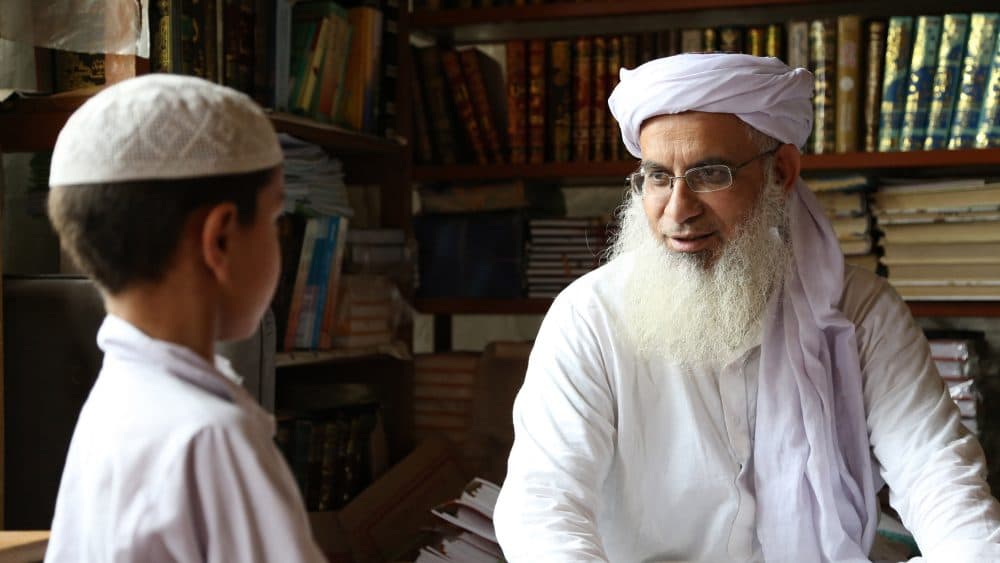Advertisement
Documentary Explores Roots Of Religious Extremism In Pakistan

The new film "Among the Believers" profiles Pakistani cleric Abdul Aziz Ghazi, a Taliban and ISIS supporter whose organization is using schools to spread his form of radical Islam.
The film will open theatrically in New York on Friday, and then in Los Angeles one week later. It will also be shown on the World Channel in October, and will be available on iTunes, Amazon and on DVD on Oct. 25.
Co-directors Hemal Trivedi and Mohammed Naqvi join Here & Now's Jeremy Hobson to talk about the film.
Interview Highlights: Hemal Trivedi & Mohammed Naqvi
On the production process
Mohammed Naqvi: "It was a very, very long process. The production was like the waiting game if you will in some sense, where I had to meet Molana Abdul Aziz, who is the main subject of our film. The way I kind of gained his trust was I had to meet him at a level playing field. For me, that was asking him questions about my own spirituality and my own faith, Islam. Once we were able to form a connection there, I was able to cover a lot more ground."
On the rise of madrasa networks
Hemal Trivedi: "That brings back to the initial question that I wanted to answer when I started making this film. The inception of this film was I lost a very dear friend in Mumbai terrorist attacks. And following these attacks, I really wanted to understand why, why does this phenomenon exists and what's happening. And what I realize was that, Pakistan is a deeply divided country. That is, a fringe minority of extremists who are trying to take over the way of life of the vast majority of Pakistanis. And this fringe minority are actually filling the vacuum that the government has left unfilled.
It's the government's job to provide children, or citizens of its country, with food and shelter and clothing and education. But that vacuum is filled by these madrasas, which to a lot of families is actually a free daycare. A lot of people have multiple kids and they do not have means to feed their kids. So they send them to these madrasas, not knowing what these madrasas are all about."
"It's just that these madrasas have become this political tool and have become these weapons in the hands of people who see these kids as cannon fodder as against students who want to educate themselves."
On the relationship between madrasa networks and terrorism
Naqvi: "If you're asking me, are some of the militants in the terrorist attacks that are cared out in Pakistan in our recent contemporary history dealing to the Red Mosque? Yes, some of them are. And it's not just the Red Mosque, of course. There are other madrasa networks throughout Pakistan. But worldwide? No, I wouldn't necessarily say that. Worldwide, a lot of it is online, social media network recruiting. A lot of it is secondary generation immigrants really — dissatisfied youths, their quest for looking for adventurers or somehow manifesting their own adolescent angst rage into this very destructive form of militancy."
On reactions from the government and Abdul Aziz
Trivedi: "The Pakistani government banned this film primarily because it saw this film as a threat to their pursuit to combat terrorism within Pakistan... which is kind of ironical because they haven't banned institutions that do that, but they banned our film."
Naqvi: "[Abdul Aziz] liked it. In fact, he endorsed it fully and he said that 'this is a very accurate representation of my point of view and different fractions and fissures in the Pakistan society within the field of education.'"
Guests
Hemal Trivedi and Mohammed Ali Naqvi, co-directors of "Among the Believers." Naqvi tweets @manaqvi. The film tweets @atb_film.
This article was originally published on September 29, 2016.
This segment aired on September 29, 2016.
